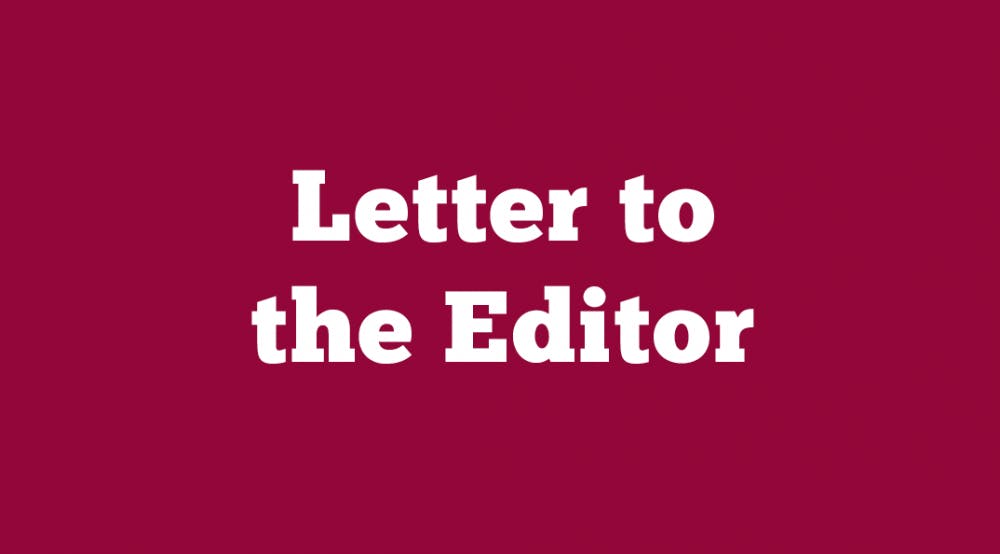LETTER TO THE EDITOR: Discourage hate and discriminatory speech on our campus
In 2017, the Department of Justice reported more than 7,000 hate crimes, defined as acts of physical harm and specific criminal threats motivated by animus based on race, color, national origin, religion, gender, sexual orientation, gender identity or disability. Fifty-eight percent of those crimes were racially motivated. The DOJ illustrated a sizable number of hate crimes on the basis of religion (22 percent), sexual orientation (15.9 percent), gender identity (11.7 percent) and disability (1.6 percent).
It is worth noting that these are only the number of hate crimes that have been reported. For fear of retaliation or social ostracism, it is very common for a survivor to not report a hate crime.
At Central Michigan University just this past year, a residence life staff member was targeted by not one, but two hateful messages that were directed at him, both on the whiteboard he used to communicate with his residents and his “proud dad” wall display. A similar incident happened to a group of women of color.
In response to these discriminatory, cruel, and dehumanizing messages, Addison Cowling suggested in a CM Life column that we are faced with a decision: To grow thick skin, or not put up white boards for individuals to write upon. These suggestions are counterintuitive and miss the point. Cowling’s suggestions run contradictory to his overall thesis: that we should engage in deliberation and provide forums for all forms of speech.
An individual of a marginalized identity should not have to take preemptive measures to combat hatred. Furthermore, that individuals assume white boards left on the door of a person of a marginalized identity will inevitably invite hateful, provocative or otherwise exclusionary comments, proves that we urgently need a better solution than Cowling’s.
Here is my suggestion to the CMU community: Discourage hate and discriminatory speech on our campus, even if there is a legal argument for its existence
I write this column in response to two Central Michigan Life opinion pieces: Cowling’s piece “Free speech for everyone including the racists and the transphobes,” and Jacob Preston’s piece “Mainstream media continuously attacks Christianity.”
Many CMU students felt that these two columns misrepresent the purpose of the first amendment — not as a right as intended, but as a weapon. In principle, an individual has a right to use free speech however they please. Nevertheless, we must recognize that both the freedom speech and freedom of religion can be weaponized and used to suppress traditionally underrepresented groups. Understanding this is the quickest way to minimize the use of hate speech and discrimination in our country and on our campus.
There is always an invisible (and sometimes intangible) cost to the freedoms that we enjoy. Free services come at the cost of labor. Freedom of individual agency comes with social and legal regulations. Freedom at CMU has the potential to cost a safe and functioning learning environment where all students are afforded the opportunity to grow and develop into productive professionals, and marginalized students are paying that price.
In response to Preston’s column, if one’s religious faith is grounded in love and compassion for human beings, then that love should be unconditional, regardless of identity. Furthermore, similar to the question of free speech, one cannot and should not use religious values as a defense for discrimination. An objective and nuanced conversation about religion would stress that, for some people, it genuinely helps them become a better person. On the other hand, one cannot deny the history of oppression that is associated with religion, ranging from slave masters using religion to justify black subservience to religion being used to this day to discriminate against the LGBTQ+ community. Nuanced discussion requires things to be viewed in a holistic sense.
The same could be said with regard to freedom of speech.
In response to Cowling’s column, I agree that there should not be a ban on certain words or phrases. That would set a dangerous precedent of censorship and would open the door for other forms of speech to restricted. The concession ends when one refuses to condemn hate speech in all forms. As future leaders, executives, teachers, politicians and professionals, we have a responsibility to denounce hate and uphold the values of inclusion and compassion that we always preach. That hate speech is constitutionally protected should not be justification for its use; morally, we need to make sure that the speech we encourage on this campus serves to bring people up, not push them down.
Hate speech, though constitutional, is not harmless.
For example, research psychologist Jordan B. Leitner found that death rates from circulatory disease are more pronounced in communities where whites harbor racial bias toward black Americans. This is most likely due to the constant fear that hate speech and “rhetoric” will evolve into actions motivated by prejudice or explicit bias. This effect among a host of additional effects should be considered, for anyone who defends the use of hate speech is an accessory to those physical and psychological damages. There is a moral imperative that we condemn this damaging language.
We cannot truly create that environment of advocacy and acceptance without self-reflection. This requires students, faculty, and staff of privileged identities to listen to the words, concerns, and frustrations of those who lack privilege. This requires individuals to understand the prevailing effects of systemic oppression. Privilege is not something to be sorry or shameful for. One with privilege cannot control how they were born, just like those who lack privilege.
CM Life, I understand that you have a policy of accepting a diverse array of student voices, and I respect that. But understand that the columns you choose to run is an exercise of privilege, and there are costs associated with that. Use that privilege to advocate and advance the struggles of underrepresented groups — not demonize them.
— Daesean Ashby
Central Michigan University senior







